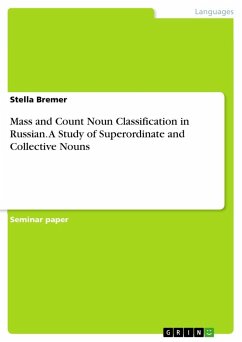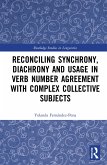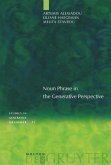Please note that the content of this book primarily consists of articles available from Wikipedia or other free sources online. In linguistics, a collective noun is a word used to define a group of objects, where objects can be people, animals, emotions, inanimate things, concepts, or other things. For example, in the phrase "a pride of lions," pride is a collective noun. Most collective nouns encountered in such as "group," are mundane and are not specific to one kind of constituent object. For example, the terms "group of people," "group of dogs," and "group of ideas" are all correct uses. Others, especially words belonging to the large subset of collective nouns known as terms of venery (words for groups of animals), are specific to one kind of constituent object. For example, "pride" as a term of venery refers to lions but not to dogs or llamas. Collective nouns should not be confused with mass nouns, or with the collective grammatical number.








